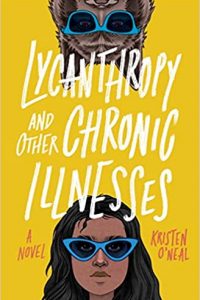Amy Goldschlager Reviews Vita Nostra Audiobook by Marina & Sergey Dyachenko
 Vita Nostra, Marina & Sergey Dyachenko; Jessica Ball, narrator (HarperAudio/Blackstone Audio 978-1-98255504-7, $39.99, MP3 CD, 18.25 hr., unabridged [also available as a digital download]). November 2018.
Vita Nostra, Marina & Sergey Dyachenko; Jessica Ball, narrator (HarperAudio/Blackstone Audio 978-1-98255504-7, $39.99, MP3 CD, 18.25 hr., unabridged [also available as a digital download]). November 2018.
Lev Grossman’s The Magicians meets Max Barry’s Lexicon in this spooky Russian contemporary fantasy about a mysterious university in a remote town. High-school student Sasha is enjoying a beach vacation with her mother when a sinister-seeming man convinces her that if she doesn’t perform a series of strange tasks, her mother’s life will be in danger. The gold coins Sasha vomits upon completing these acts prove to be her tuition to the School of Special Technologies in Tulpa. Although the question as to what “special technologies” actually are is raised multiple times, no one ever answers it; certainly, the book never approaches the word “magic,” but the students are clearly learning something outside the ordinary. Hardworking Sasha learns to perform a series of brain-bending exercises that change the way she perceives the world and that transform her physically. Far and away the top of her class, her contrary desires both to excel and to bend the rules lead her down a strange and dangerous path toward the mysterious exam she must take in year three.
When producing the audio version of a book translated from a foreign language and/or set in a non-English speaking country, the publisher usually goes with one of two options: do the whole book in the accent of that language (which would be Russian, in this case, although the authors are Ukrainian), or just pick someone with an English accent, which sounds foreign and classy to American listeners. (It is also true that a poor imitation of a Russian accent can seem particularly cartoonish, heading straight to Boris-and-Natasha territory.) The producers went with option two, which was perfectly fine, and lent an air of almost prim formality to the ever-increasing weirdness of Sasha’s situation.
The question one must always ask regarding a lengthy audiobook: is it worth investing this much time? The worldbuilding and character development do have a certain pull. After the upper-class accommodations of Hogwarts and Brakebills, it’s almost refreshing to visit a school with poorly maintained, badly heated rooms and mediocre food; it makes the milieu seem more real, putting the rest of the story into sharp relief. Sasha’s drive to be the best will certainly be familiar to many of us. But the idea that the most effective way to teach something is through threats and punishment never seems plausible, which is presumably why Sasha rejects it in the end. And while we don’t necessarily need full answers about the nature of “special technologies” – the general oddness and creeping dread of the work is fairly effective without those answers – what we do get sounds more like pretentious nonsense than anything profound (what does it even mean to embody a verb or a pronoun?). Finally, the story’s climax is so highly telegraphed that it’s impossible not to perceive it from a long way off.
It’s a fascinating journey, on the whole, but a less than satisfying destination.
This review and more like it in the April 2019 issue of Locus.
 While you are here, please take a moment to support Locus with a one-time or recurring donation. We rely on reader donations to keep the magazine and site going, and would like to keep the site paywall free, but WE NEED YOUR FINANCIAL SUPPORT to continue quality coverage of the science fiction and fantasy field.
While you are here, please take a moment to support Locus with a one-time or recurring donation. We rely on reader donations to keep the magazine and site going, and would like to keep the site paywall free, but WE NEED YOUR FINANCIAL SUPPORT to continue quality coverage of the science fiction and fantasy field.







